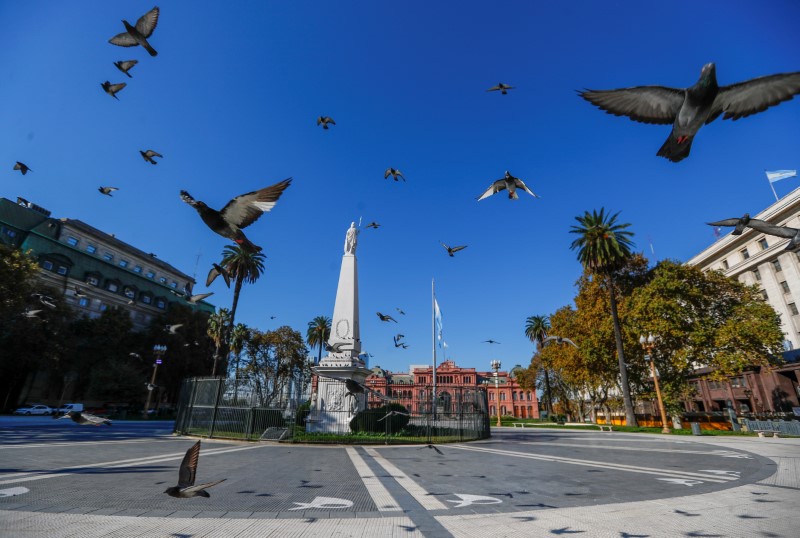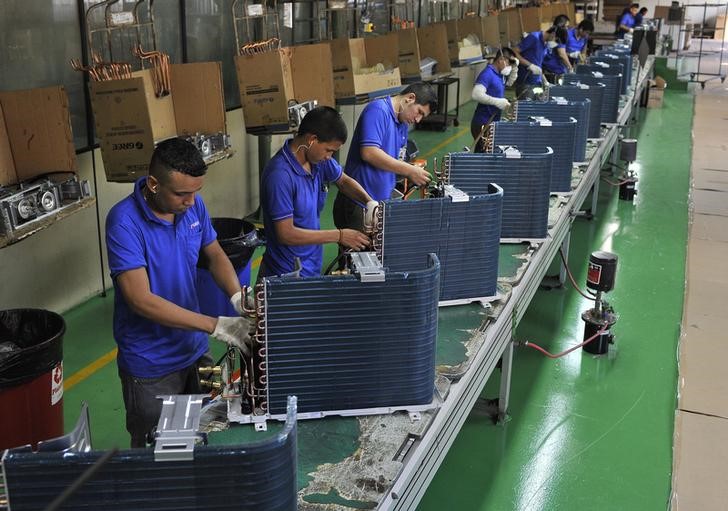By Hugh Bronstein
BUENOS AIRES (Reuters) - Argentina's industrial output crashed 33.5% in April from the same month last year, the government's statistics agency said on Thursday, as the national lockdown to fight the coronavirus pandemic bludgeoned Latin America's No. 3 economy.
It was the sharpest drop in industrial output since the 1990s, when the country was tilting into a financial crisis that would press millions of middle class Argentines into poverty.
More than 580 Argentines have died in the pandemic so far and urban centers remain largely closed to business. Argentina recorded 949 new infections on Wednesday, the highest daily jump since the pandemic began. The country has a total 19,268 cases.
"Other countries with this kind of fall in economy production are in a stage where the epidemic is somehow under control, with a decrease in active cases. Argentina, however, is just starting to see an increase in cases," said Gabriel Zelpo, director of local economic consultancy Seido.
He forecast that Argentina's economy will shrink more than 10% this year after recessions of 2.1% in 2019 and 2.5% in 2018.
"The operational limitations resulting from compulsory preventive measures substantially affected industrial activity," Argentina's INDEC statistics agency said in a statement announcing the drop in April.
Only about a third of the country's industrial manufacturing base was able to operate normally, the statement said, "while the remaining two thirds either did not operate or could only operate partially."
Argentina's construction sector plummeted 75.6% in April from April 2019, government data showed.

Like the economic meltdown that marred Argentina at the start of the 2000s, the country once again finds itself in a sovereign debt default as the government tries to restructure its bonds. The latest default occurred on May 22 when Argentina missed an interest payment of $503 million.
